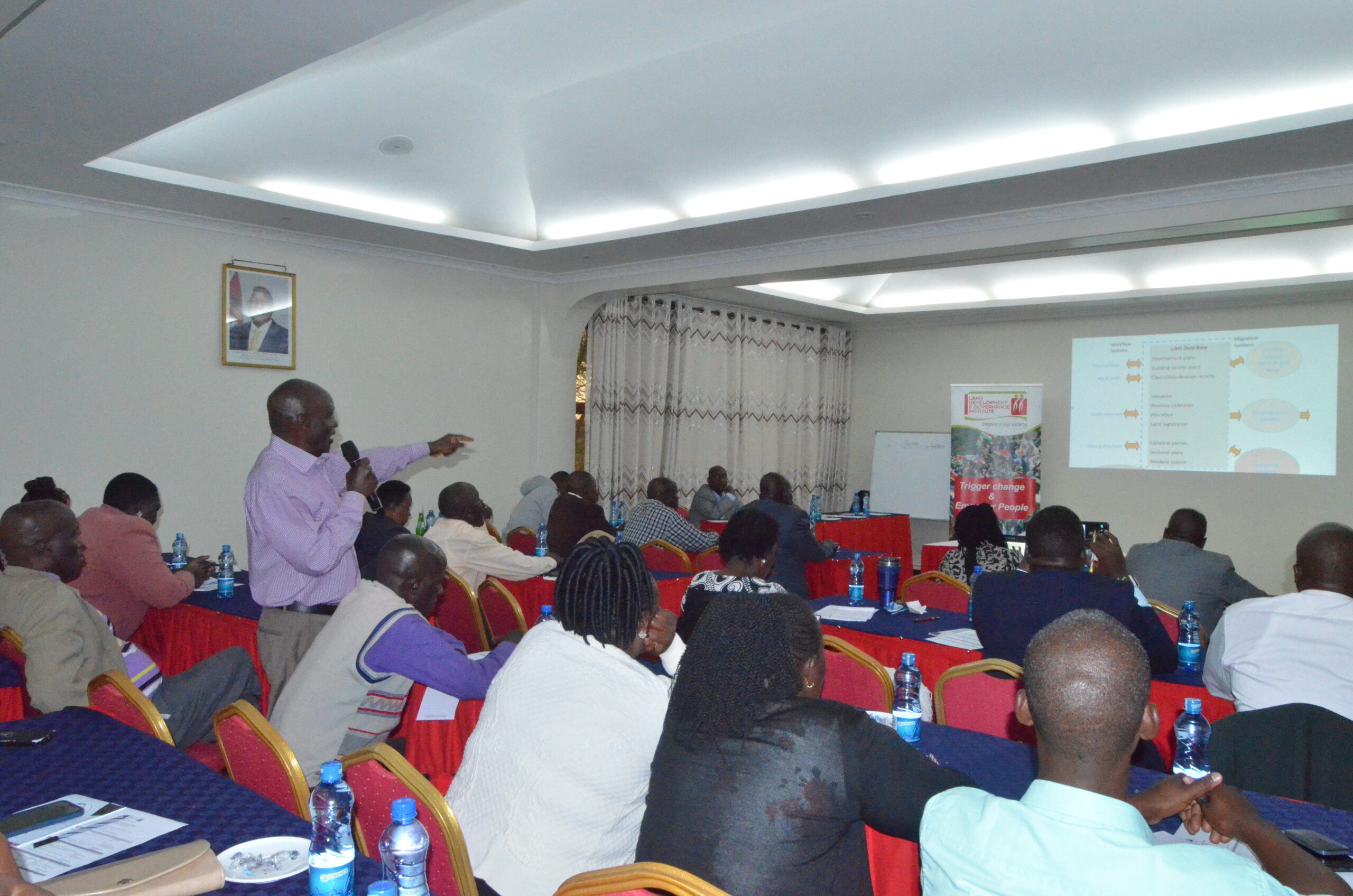On October 31, 2001, the City Council of Nairobi announced that the 2001 Draft Valuation Roll — the document that contains the value, size and location of a rateable property within the jurisdiction of a given local authority — was ready and open for public inspection at City Hall’s Valuation Department on the 4th floor of the Nairobi address.
The notice that appeared in the local dailies and signed by the then Town Clerk also invited all persons aggrieved either by including or omitting any rateable property in the draft valuation roll to object within 28 days of the notice’s publication date. They were required to pay a non-refundable fee of Sh500 per entry form.
Soon, it was pandemonium as thousands of property owners jammed City Hall in search of the objection forms.
Rating laws require an authority like the City Council of Nairobi to establish a valuation court to consider and determine all objections.
However, there is no limit to the period within which the court must be set up after the 28-day objection period expires. (Rating is the process of assessing the value of a given parcel of land for taxation purposes).
Second notice
And so with this in mind, City Hall published a second notice mid-December 2001 saying that it had levied the 2002 rates based on the 2001 draft valuation roll.
This was even before the objections could be heard and determined. The rates, which were to become effective on January 1, 2002, were payable by May 31, 2002.
But something soon went terribly wrong for City Hall. A property owner by the name Jacqueline Resley filed a case in the High Court of Kenya challenging the decision of the City Council of Nairobi to publish the 2001 draft valuation roll and to levy the 2002 rates based on that roll.
As it turned out, the local authority had overlooked the requirement that before putting out a notice in the papers for the inspection of a new or draft valuation roll, it has to be first published in the Kenya Gazette.
To try to overcome the invalidity, the City Council of Nairobi published two notices in the Kenya Gazette on January 25, 2002.
The first notice dealt with the rate levy for 2002 under the Rating Act Cap 267, while the second notice dealt with the laying of the 2001 Draft Valuation Roll before the Full Council under the Valuation for Rating Act, Cap 266.
But it was a case of too little too late. Lady Justice Calpana Rawal, the judge who was hearing the case, is quoted as saying: “To say the least, I am exasperated with the slipshod and carefree manner in which the Council has purported to follow the provisions of both Acts which affect the proprietary rights of Nairobi residents. That action was a nullity and was not curable and could not be cured by publishing the very notices in the Kenya Gazette.”
And with that, the 2001 draft valuation was quashed, forcing City Hall to levy land rates on the basis of the old (published in 1982) valuation roll.
Epic battle
City Hall has never seen such an epic court battle with property owners since then.
However, a new slew of legal battles seems to be in the offing. After a widely publicised month-long grace period during which it waived interest rates and penalties to rate defaulters, City Hall says thousands of property owners have still not paid the rates.
In what is likely to be the battle of its life, the local authority says it is now ready to make good its threat throughout the month-long campaign that it would repossess the defaulters’ properties and auction them to recover the debts.
“The auctioneers’ hammer will certainly fall on these properties,” Town Clerk Roba Duba was quoted by the Business Daily on Monday as saying.
Mr Duba revealed that by Friday last week, City Hall had collected Sh1.3 billion. It had projected a collection figure of Sh3.5 billion by the end of the waiver period on Tuesday, August 21.
By late July, it was estimated that over 60,000 property owners were in rates arrears and risked losing their properties.
Analysts say that some of the thousands of the defaulters could be preparing for a court battle with City Hall should their properties be repossessed.
“I think there are going to be vicious legal battles between City Hall and rate defaulters,” says Mwenda Makathimo, the director of Land Development and Governance Institute.
According to Mr Makathimo, a former chairman of the Institution of Surveyors of Kenya, some rate defaulters could exploit the loopholes created by the slow transition from the old laws to new ones under the new Constitution.
For instance, he says, levying of land rates under the new Constitution is the function of county governments, not local authorities.
Assessing land rates, on the other hand, is the mandate of the yet-to-be-established National Land Commission.
“It must be understood that the law has changed. Local authorities used to have powers to penalise rate defaulters under the Rating Act and the Valuation for Rating Act. Right now, application of the two Acts contravenes the Constitution. I don’t think City Hall can sell anyone’s property today,” said Mr Makathimo, describing City Hall’s threat to auction defaulters’ properties as a “forest for lawyers who will make a mock of the whole situation”.
He seems to be in good company. On August 2, a firm by the name Vinson and Elkins put out a curious advert in the papers with these words: “Is your local authority (particularly Nairobi and Mombasa City Councils) threatening to auction your property on the basis of unpaid land rates and exorbitant penalties? The law is on your side.”
The firm invited defaulters to register with it before August 15 to help them “legally avoid paying income tax and land rates or have the same deferred minus penalties in a structured manner over 10 years”.
Our efforts to contact them for more information through the numbers they provided — a landline and a cell phone — did not yield fruit as the calls did not go through.
According to ISK chairman Collins Kowuor, the only basis on which property owners can challenge City Hall’s threat to auction their properties is the local authority’s failure to provide adequate services like garbage collection, sewerage and infrastructure.
“For me, what is important is what they would do with the money collected. I think what residents of Nairobi would like to see is an improvement in service provision. It would be nonsensical for City Hall to spend the money they will have collected from rates on salaries,” said Mr Kowuor.
He added that the transition clauses in the new Constitution allow local authorities to collect land rates under the old laws until new institutions like county governments and the National Land Commission are established.
In a new study launched by the Land Development and Governance Institute a month ago, Mr Makathimo and Joycelyn Makena note that the Constitution of Kenya 2010 provides that the National Land Commission shall have powers to assess land taxes.
Titled Application of Fiscal Instruments in Land Management, the study, which focused on Kajiado County, acknowledged that the (land) taxes imposed are legally enforceable “and must be paid by all those individuals and organisations that come within the jurisdiction of the taxing authority”.
“There are fines and penalties for failure to pay taxes,” says the report, which, however, is silent on whether or not a local authority has legal powers under the new Constitution to auction defaulters’ properties.
Nairobi lawyer Evans Monari was quoted on Monday as saying that City Hall should tread carefully on the matter, warning that failure to obtain the necessary court orders would leave it in a “swamp of legal suits”.
“City Hall has been spreading alarmist warnings… purporting it has powers to repossess and sell people’s property. Any attempt to do so without court orders would be futile,” he said, noting that if such action is challenged in a court of law, “courts will lean towards safeguarding individual’s rights right to property as spelt out in Article 40 of the Constitution”.
However, section 19 of the Rating Act Cap 267 allows a local authority to register a charge against the title of a parcel of land in case of default on rate.
City Hall’s spokesperson Wilfred Marube says: “Sections 17 and 18 of the Constitution empower a rating authority to recover unpaid rates”.
Pauline Muraya, a real estate consultant in Nairobi, says that City Hall can only sell a defaulter’s property after obtaining a court order, but this will be a tall order for the City Fathers in their latest assault on rate defaulters.
“Given the numbers involved and the backlog of cases in our courts, it might take years for City Hall to obtain such orders,” she says.
In a chapter on property tax she has contributed in The ABC of Real Estate Investment in Kenya, a new book authored by Kariuki Waweru, Ms Muraya warns: “Investors in real estate might find themselves in trouble if City Hall decides to deal with rate defaulters. People seem to be buying houses and plots disregarding land rates that should be paid annually to local authorities.”
She says that at times, real estate investors assume, ignore or forget their obligation to pay land rates, which pile into huge amounts. Among these people, she notes, are those who inherit a debt-ridden property on purchase.
“Legally, it is important to obtain a clearance certificate from City Hall to confirm that dues pertaining to the property are settled. Failure to obtain the certificate means the buyer inherits the accrued debt from the previous owner,” she advises, noting that a property lawyer can help one avoid such pitfalls in property transactions.
Meanwhile, everyone will be watching City Hall’s next move after the expiry on Tuesday of the grace period to rate defaulters.








